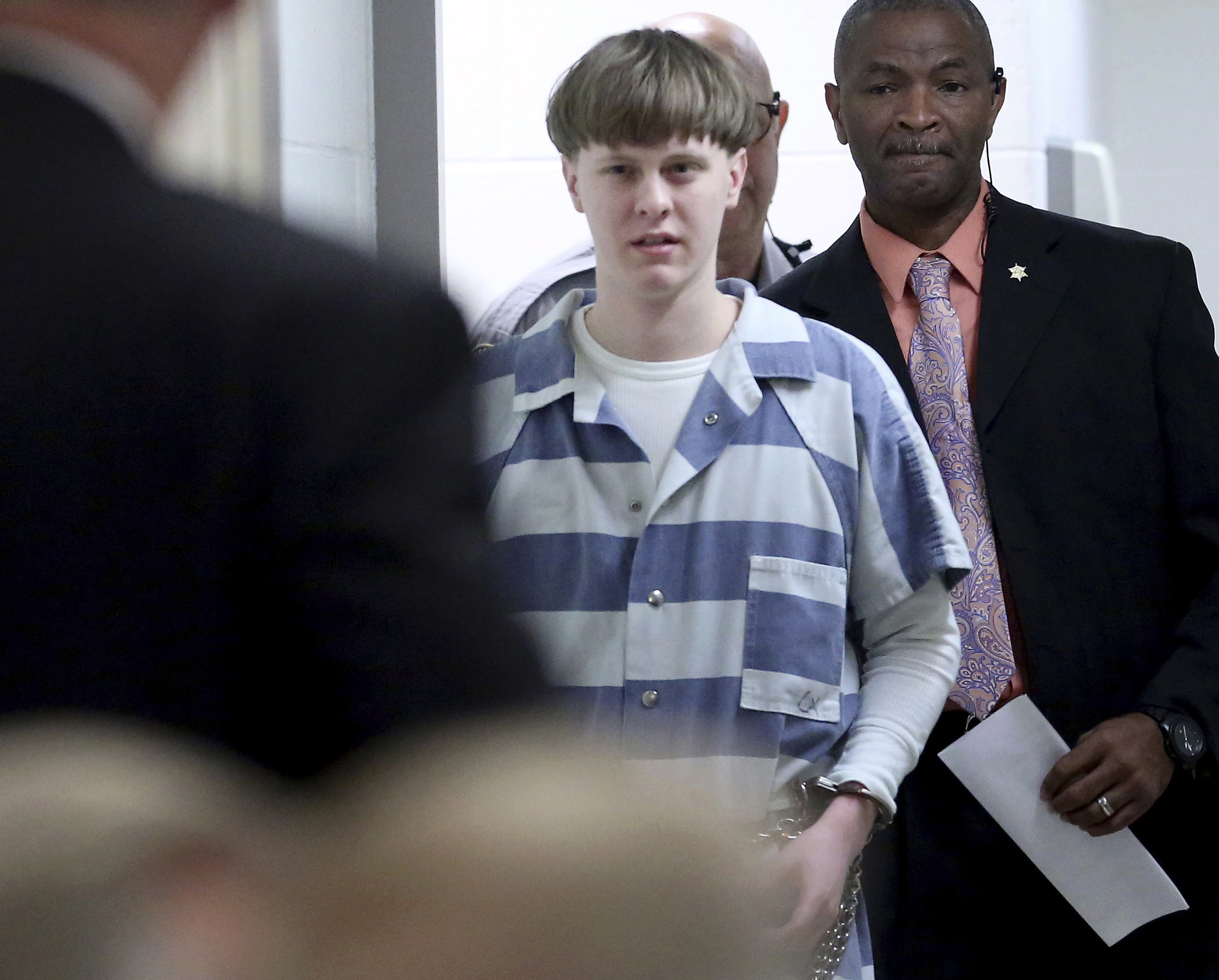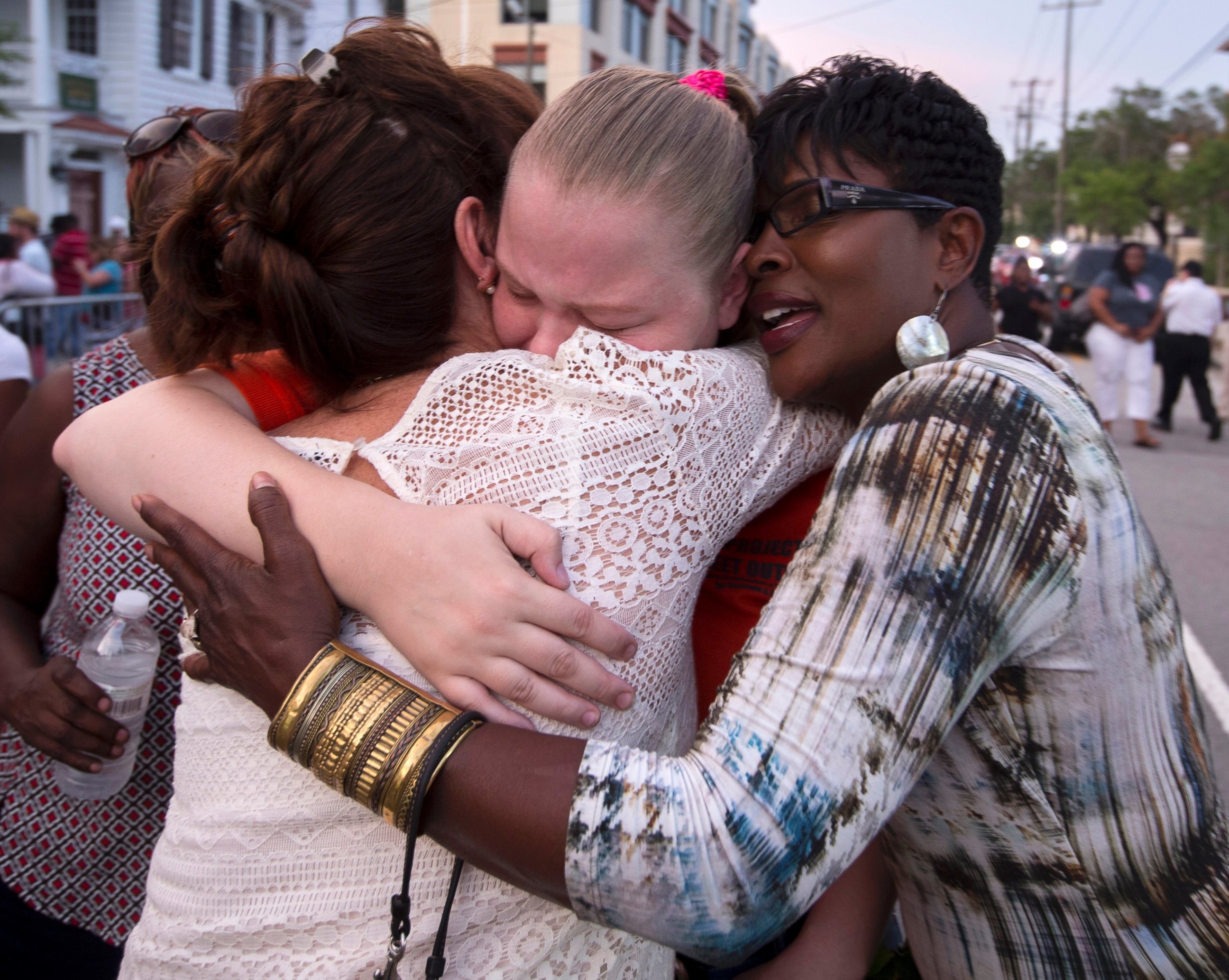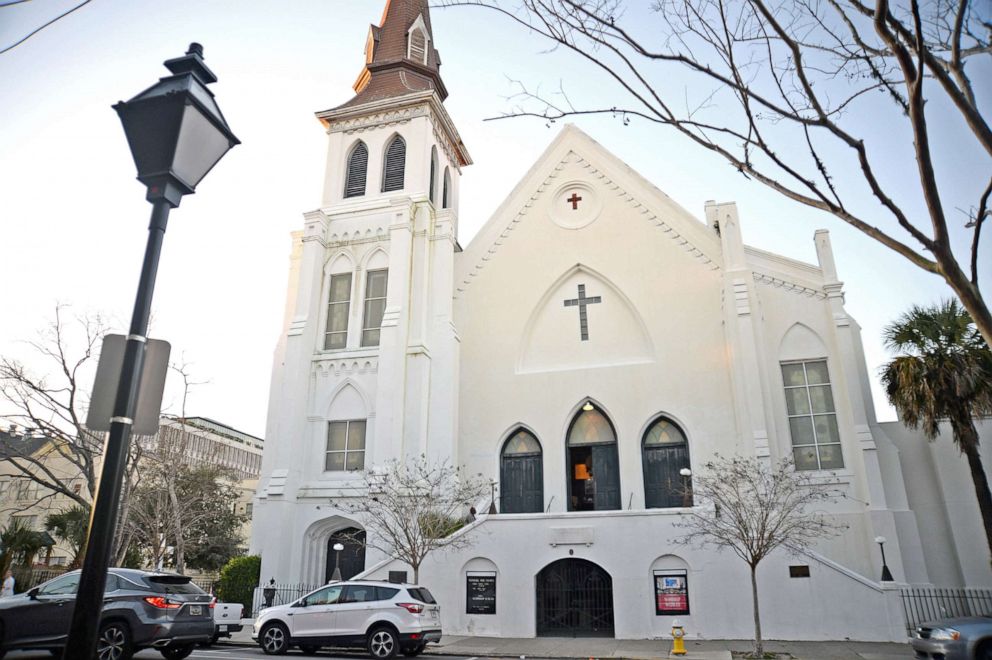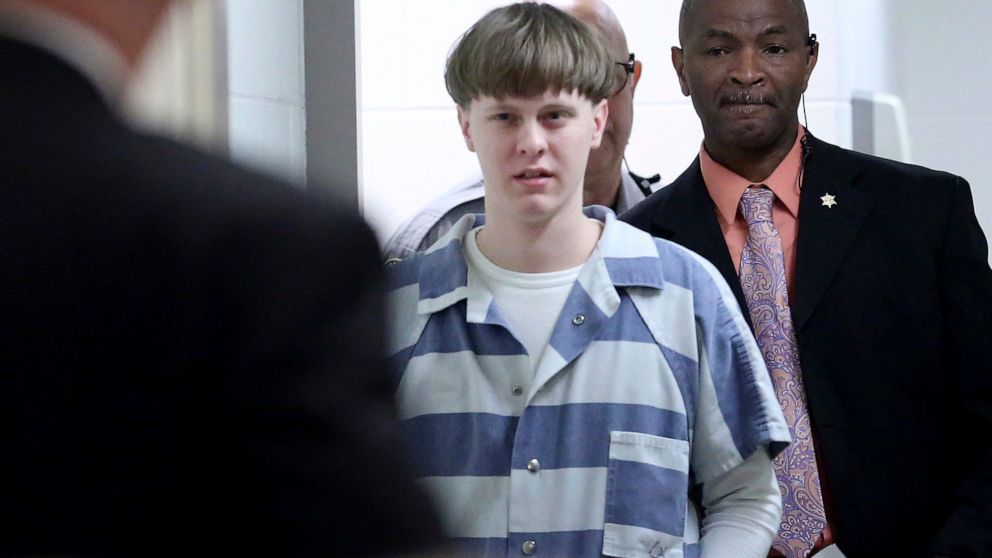DOJ reaches settlements with victims' families in 2015 Charleston church shooting
The Justice Department on Thursday announced it had reached settlements with the families of victims murdered by Dylann Roof in the 2015 Charleston, South Carolina, church shooting.
Families had sued the federal government in 2016 because Roof was able to purchase a gun to carry out the shooting, despite having a prior criminal history.

The civil case has since made its way through the court system, with a federal appeals court ruling that families could sue the government.

The shooting, which took place in June 2015 at the Mother Emmanuel AME Church in Charleston, South Carolina, killed nine African American worshippers.

"These settlements will resolve claims by 14 plaintiffs arising out of the shooting. Plaintiffs agreed to settle claims alleging that the FBI was negligent when it failed to prohibit the sale of a gun by a licensed firearms dealer to the shooter, a self-proclaimed white supremacist, who wanted to start a “race war” and specifically targeted the 200-year-old historically African-American congregation," the Justice Department said in a statement.
"For those killed in the shooting, the settlements range from $6 million to $7.5 million per claimant. For the survivors, the settlements are for $5 million per claimant," the DOJ statement said.
Roof, an avowed white supremacist, was sentenced to death, the first person to get the death penalty for a federal hate crime.
Lawyers and several family members of the victims shooting gathered outside the Justice Department following a private meeting with Attorney General Merrick Garland on their settlement deal.
The family members included Jennifer Pinckney, the wife of the late South Carolina state Sen. Clementa Pinckney and her two daughters Malana and Eliana, as well as Rev. Anthony Thompson, husband of the late Myra Thompson -- all of whom spoke passionately in favor of the settlement while acknowledging that no dollar figure could take the place of their lost loved ones.
"I still relive and think about what happened being there. I'll remember it until the day I die," Jennifer Pinckney told ABC Chief Justice Correspondent Pierre Thomas at the news conference. "If I had the opportunity to bring Clementa back, I’d switch. You can all take the settlement, bring my husband back to me, bring their father back to them because we had a nice life. Most people you know they always say I want a good I want a good man in my life. I want a good household. I want a good family. I had that. They had an excellent father. I had an excellent husband and we worked together and we worked to raise our girls. So bring him back."
"The settlement is not bringing anybody back," Thompson said. "The settlement will not bring satisfaction to my life or the life of my children more than the fact that this act, this tragic act -- God made it something good and that's what's bringing joy to my life, the life of my children, our community and our state."
The total amount of the settlement will be $88 million, with $25 million going to the survivors of the shooting and $63 million going to the families of the nine victims, attorney Bakari Sellers said.
Sellers noted the significance of the "88" figure given its relevance in the white supremacy movement in the U.S. -- the Charleston shooter Roof had an '88' insignia on his shoes.
Eliana Pinckney said she and her sister plan to use the money from the settlement "to make sure that we're doing everything we can to make sure that my father's legacy doesn't go away."
"It’s already so hard to lose someone you love, but it’s even harder to grow up without a father knowing he lost his life in a place that he devoted his entire life to," Pinckney said. "I've spent the rest of my life, from the day that he died to the day that I die, making sure that I'm doing whatever I can to make my father proud, to make sure that everything he fought for doesn't go unspoken -- doesn't go forgotten."




